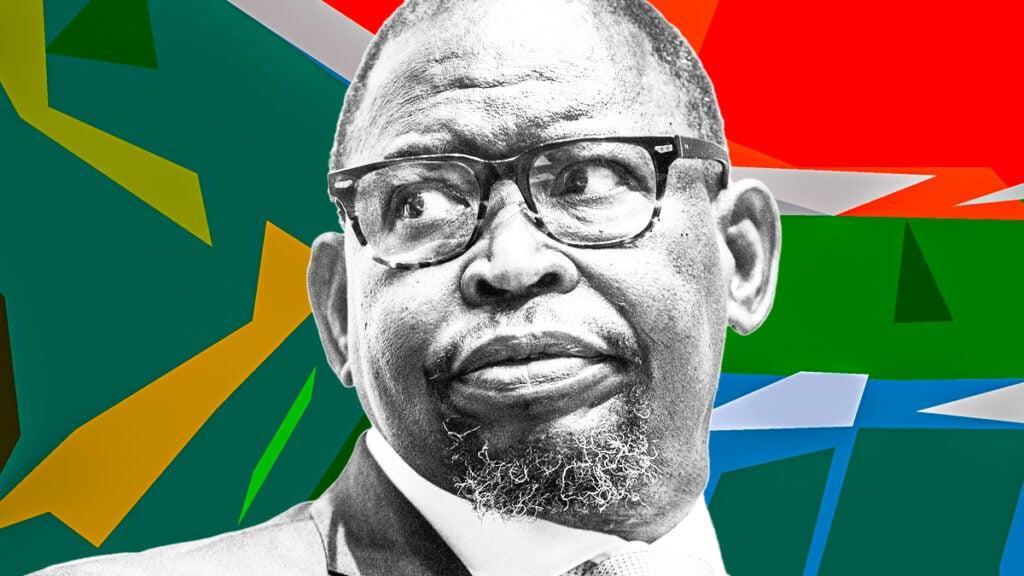Africa-Press – South-Africa. South Africa is in the midst of an economic crisis in slow motion, with the past decade of lacklustre growth coming back to haunt the country.
The first area in which this crisis is manifesting itself is in the government’s fiscal accounts, which show the state is spending over R1 billion a day to service its debt.
As a result, spending in other areas of the economy is being crowded out, which will further drag on economic growth.
Currently, this puts the country on a path to hitting a fiscal cliff, with difficult decisions being necessary to avert a full-on crisis.
This is feedback from Efficient Group chief economist Dawie Roodt, who outlined South Africa’s slow descent into an economic crisis.
Roodt also said that the government and politicians appear unaware of this descent, as they double down on failed policies and do not act with the urgency the situation requires.
“We often only look at things in terms of economic growth and unemployment, with little attention to the looming crisis in the country’s fiscal accounts,” Roodt told the State of the Nation podcast.
“The debt levels have become unsustainable, and they will continue to rise without much faster economic growth. Our politicians act as though they do not know that yet.”
Worryingly for Roodt, the Budget has become a political game, with parties using the fiscal accounts to score political points.
This makes it increasingly difficult to reach a consensus on major issues, such as addressing the debt burden and implementing policies that drive economic growth.
“We know what happened with the Budget at the beginning of 2025. This is going to become a bigger political issue in South Africa going forward,” Roodt said.
“I look at the way our politicians manage certain crises, such as the US tariffs, unemployment, Eskom, and now the government’s finances, and I don’t know what is happening.”
“I don’t understand why our politicians make the decisions they are making. Are they trying to survive politically? Are they trying to line their pockets? I don’t know.”
“Do they realise that we are already experiencing a slow-motion economic and financial crisis in South Africa? We do not see them taking the necessary steps to address these problems.”
Small changes needed
Efficient Group chief economist Dawie Roodt
Roodt explained that the economic and financial crisis requires small, important changes to resolve.
While the National Treasury’s policy of fiscal consolidation is bearing fruit, it will take years before the country’s debt burden is meaningfully reduced.
The only real solution to South Africa’s slow-motion crisis is faster economic growth, which will resolve the country’s financial headwinds through increased tax revenue without raising rates.
Crucially, faster economic growth will begin to make inroads on the country’s unemployment crisis, and naturally attract investment, creating a virtuous cycle.
Roodt explained that if small changes are made to state policy, the country’s economic growth could easily triple within a year.
This includes creating a stable political environment with certainty regarding property rights, which is paramount for any investment in the country.
Coupled with new electricity generation capacity being added to the grid and increased private sector investment in the logistics sector, economic growth could skyrocket.
Albeit off a low base, faster economic growth would completely shift the equation for South Africa, creating a virtuous cycle and changing how it is viewed globally.
“If we get the right government in charge in South Africa and take a few small, important steps, then we can get economic growth up to 3% or even higher within a year,” Roodt said.
“Now, we are sitting with economic growth well below population growth and below 1%. What is really concerning is that we will see an increase in unemployment and absolute poverty in South Africa.”
Old Mutual chief economist Johann Els said South Africa is on the path to faster economic growth, with structural reforms well underway.
Reforms in the country’s electricity and logistics sectors appear to be gaining momentum, resulting in the private sector playing a much larger role in the local economy.
Combined with cyclical factors such as low inflation and interest rate reductions, the country’s GDP growth is forecast to rise above 2.5% in the next few years.
For More News And Analysis About South-Africa Follow Africa-Press






